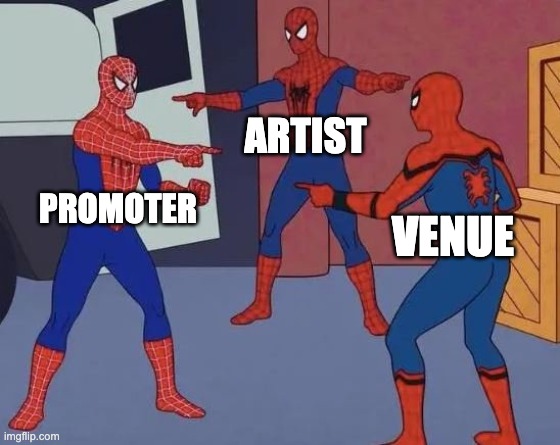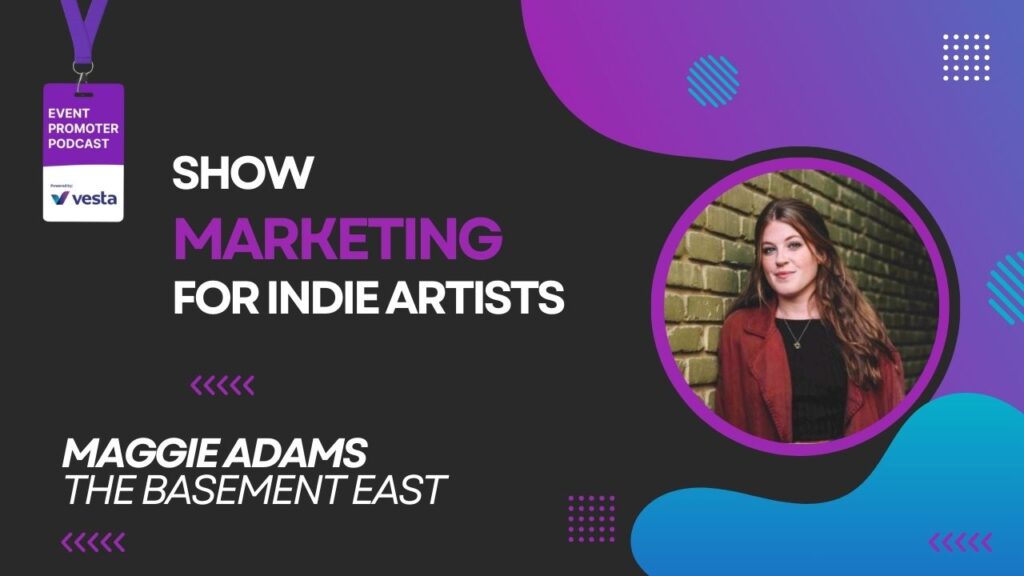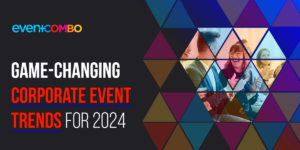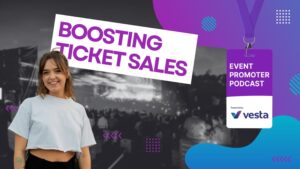Watch on YouTube | Listen on Spotify | Listen on Apple Podcasts
For independent musicians, promoting shows can feel like navigating a maze of responsibilities. Between writing music, rehearsing, booking gigs, and managing social media, show promotion often becomes an overwhelming task.
In this expert interview on the Event Promoter Podcast, we dive deep into actionable show marketing strategies with Maggie Preston (Adams), Marketing Manager at Nashville’s Basement East. With experience on both the venue and artist management side of the industry, Maggie shares invaluable insights to help independent artists maximize their show promotion efforts.
Whether you’re playing your first shows or looking to level up your marketing game, these proven strategies will help you fill more venues and connect with more fans.
Show Marketing Tips for Independent Artists with Maggie Preston (Adams), Marketing Manager at The Basement East in Nashville | Event Promoter Podcast Full Video
Live music marketing can be complex, with many stakeholders involved – from artists and management to venues and promoters. For independent artists without a team, promoting shows can feel especially daunting.

To help independent artists navigate show marketing, we spoke with Maggie Preston, Marketing Manager at Nashville’s Basement East, a 600-capacity venue. With over 10 years of experience in both artist management and venue marketing, Maggie offers valuable insights for musicians promoting their shows.
Take Ownership of Your Show Marketing
The first key message Maggie emphasizes is that independent artists need to treat show marketing like part of their job. As she explains:
“No matter who else is helping you, it’s important to take the onus, especially if you don’t have a manager or agent. You’re the one that can get your audience to pay attention.”
Leverage Your Own Audience First
While venues can help with promotion, Maggie stresses that artists should focus on engaging their existing fans. Good promotion is a collaboration between the artist, promoter, and venue.
“The most important thing is leaning into your own audiences, using your own email list, your own socials… Because that’s one thing from the venue point that I can’t access. Fans are going to be following the artists they like more than the venue they like.”
Get Creative with Social Content
When it comes to social media promotion, Maggie recommends:
- Focus on platforms where you’re most comfortable and where your fans are most active
- Use video content when possible
- Create promotions that align with your unique artistic identity
- Mix creative content with standard show announcements
She shares an example of comedian John Early promoting his show with a humorous video that played to his strengths, rather than just posting standard show details.
Work Effectively with Venues
To maximize venue support, Maggie recommends:
1. Make Initial Contact
- Ask who handles marketing at the venue
- Get clear on advertising budgets and plans upfront
2. Provide Assets Early
- High-quality photos
- Bio information
- Video clips
- Upcoming press or release dates
- Any other promotional materials
3. Maintain Communication
“Follow up with the venue every couple weeks to make sure you’re on the same page,” Maggie advises.
Understanding Venue Ad Plans
When it comes to advertising plans, Maggie explains that venues often have different capabilities and budgets. It’s important to understand what promotional support you can expect. At Basement East, Maggie outlines a comprehensive ad plan that includes:
“When I make ad plans, I’ll include things like social media ads… I’m liaising with radio people in the area. It might be that I am connecting with local businesses that might want to do promotions, or outlets like Do615, which is a local event listing company, or Vesta, which lists events on many different places for you.”
Common elements of a venue’s ad plan may include:
- Social media advertising
- Local radio outreach
- Business partnerships and cross-promotions
- Event listing distribution
- Street team coordination
According to Wordstream’s Facebook Ad Benchmarks, cost per lead (CPL) for arts and entertainment events averages $13.46 on Facebook Ads, making it crucial to understand how venues will support paid promotion efforts beyond social. Maggie recommends getting clarity on these details early:
“Just getting clear on the front end who is taking charge of what is really important.”
Street Team Coordination
For physical promotion, Maggie emphasizes the importance of coordinating with venues on street team efforts:
“It’s always good to kind of get clear on who might be street teaming in what areas, if you are a local artist… if they’re capable of posting for you or if you have to go pick up the flyers yourself.”
This section reinforces Event Vesta’s findings that successful event promotion often requires a multi-channel approach, combining digital advertising with traditional marketing methods. Understanding and supplementing the venue’s promotional efforts can help artists maximize their show’s visibility and attendance.
Don’t Forget Email Marketing
While social media gets much attention, Maggie emphasizes that email marketing remains crucial.
According to Event Vesta’s 2024 Event Promotion Trends Report, email marketing remains the #1 channel in terms of driving ticket sales for most event promoters. Failing to do enough email marketing means that the fans that want to know about your shows will often miss them.
Send emails at key intervals, multiple times before each show. Send some emails to your entire newsletter so they are aware of all your show dates, but then segment some emails only to fans in the region of your show.
Here are some basic emails to send promoting an upcoming concert or show:
- Show announcement
- On-sale date
- One month before show
- Two weeks before show
- Week of show
Embrace Multiple Marketing Channels
Maggie offers a crucial reminder about marketing saturation:
“You could send a message to some person seven different ways – like a poster, a social post, an email listing, bands in town messages – and they might see one of those things. So whenever you feel like you’re doing too much, you’re actually probably not doing enough.”
In the 2024 Event Promotion Trends Report, we found that the average number of different promotional methods that event marketers used rose from 4.79 to 6.5 in 2023.
That means professional marketers increasing the number of channels they are trying to reach fans through as social media reach becomes less reliable. You need to do the same as an artist marketing your own shows.
Final Advice for Independent Artists
Maggie concludes with encouraging advice for independent artists:
“Don’t be afraid to ask other people for help. Don’t be afraid to reach out to other artists that you have seen doing things well that you’re friends with. And don’t be afraid to ask your venue partners for help because they want you to succeed as well.”
By following these tips and maintaining consistent promotion across multiple channels, independent artists can better market their shows and build their audience. Remember that successful show promotion often requires more communication than you might think – when in doubt, do more rather than less.
Want to learn more about promoting events? Check out our comprehensive guide to 31 Social Media Post Examples To Promote An Event
You can catch the full episode on our YouTube channel or your favorite podcast platform.
Check out some of our other podcasts and resources for event promoters below.



